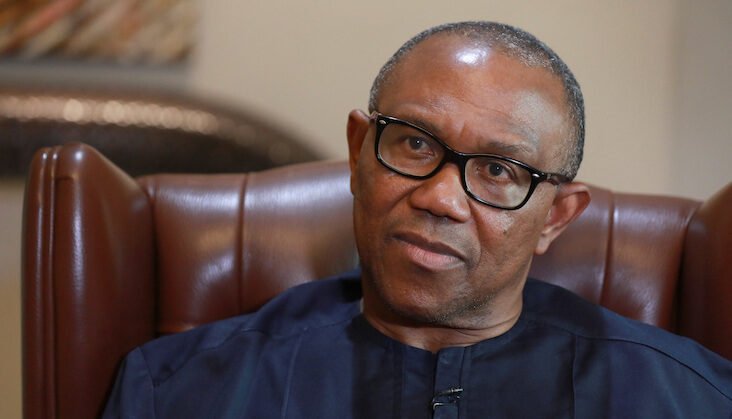Those who follow Peter Obi should take heed. In both televised words and in his just-released manifesto he has promised to rain disaster on the Nigerian people regarding the two most important issues facing the nation: Security and the Economy.
If sincere in his promises, he will devastate the nation. If not sincere in these his most fundamental promises, he then lacks sufficient credibility to be our Commander-in-Chief. This is the Obi Conundrum.
Consider security. It took Obi much too long to produce his manifesto yet publish one of such imprecision. Given its contents, he should not have bothered. Instead of showcasing someone in command of the issues, the document reveals someone who did not bother to read a document that bears his name or someone blithely ignorant of the harmful implications of his security policy.
I ask, no, I beg you to read the security portion of his manifesto. In subsection “V” ’ of that portion, Obi states he will “refocus the military on external threats … and the police on internal threats.”
This may sound good in the classroom; but it spells catastrophe in the crucible of our present reality. Boko Haram, Ansaru, as well as the large heavily armed groups of bandits roving the nation are largely homegrown. Even ISWAP is mostly Nigeria-bound. They have some foreign connections such as arms purchases and maybe some personnel: but all indications are that these groups, especially Boko Haram and Ansaru, are almost entirely domestic threats.
This means they are essentially internal threats. Peter Obi’s answer to beating them is to remove the entire military from the fight. He wants to leave the police alone in fighting heavily armed groups. This is policy madness, an unmistaken if unwitting vow of negligence and dereliction of duty.
We respect our police and the work they do. However, no reasonable person believes the police can handle these multiple challenges alone. The police arm is not equipped or even meant to deal with armed insurrection at this level. Obi seems to have missed that Boko Haram and Ansaru have explicitly declared war on the nation. The large bandit groups are in league with Boko haram and Ansaru. Thus, they too have effectively declared war against Nigeria’s democratic society.
Peter Obi somehow believes dealing with these groups is merely a law enforcement matter akin to containing a local street gang. Thus, he is willing to sideline our strongest security institutions, the army and the air force, in fighting these groups.
If Obi were given the chance to implement his manifesto, the nation would be overrun in less than a year. His would be the shortest-lived presidency on record and might well be the last one Nigeria will suffer. The question must be asked why he would offer such a dangerous proposal on such a critical matter.
Now let’s turn to the economy. At a recent town hall, Obi staked his claim to economic prowess on the proposition that he would have Nigeria emulate Bangladesh. He said it repeatedly. Here again, he appears not to know the subject matter. The Bangladeshi economy is in a tailspin. The crisis there is so dire that the nation had to turn, hat in hand, to ask both the IMF and World Bank for emergency bailouts. This is the fate he wants for Nigeria!
The praise of Bangladesh shows he is ignorant of current events. More importantly, it shows he lacks a deep understanding of how a national economy should be composed. That he was involved in the banking industry does not make him a macroeconomic expert any more than being a cashier at a local bank qualifies one to become the next governor of his or her state.
The Bangladesh economy was based on the quicksand of excessive and loose bank lending and overdependence on the ready make garment industry. Based on quicksand, it has begun sinking. An explosion of bank credit may fuel an economic expansion. But such an expansion is but a temporary illusion. It results in a boom and bust cycle, where the implosion lasts longer and causes more pain than the transient boom caused fleeting prosperity.
Also, the Bangladeshi economy was too dependent on garment exports and was insufficiently diversified. A lesson any person who wants to lead Nigeria should have learned by now is the need for diversification of key sectors of the economy. Genuis Peter seems to have missed that lesson. Worse, he wants the rest of Nigeria to join him in the error of his ways.
He is taking the Nigerian electorate for a ride. He touts economic malpractice and crisis abroad as something to emulate at home. There may be something more sinister than mere negligence at play. The man thinks Nigerians are too smitten by his flow of words and too ignorant to fact check his claims.
In short, his understanding of security and economics is sorely lacking. He has not the standing to be president of this nation. He should sit down and study more before opening his mouth in an attempt to make the lowness of dangerous ignorance appear as if it were the height of policy wisdom.

